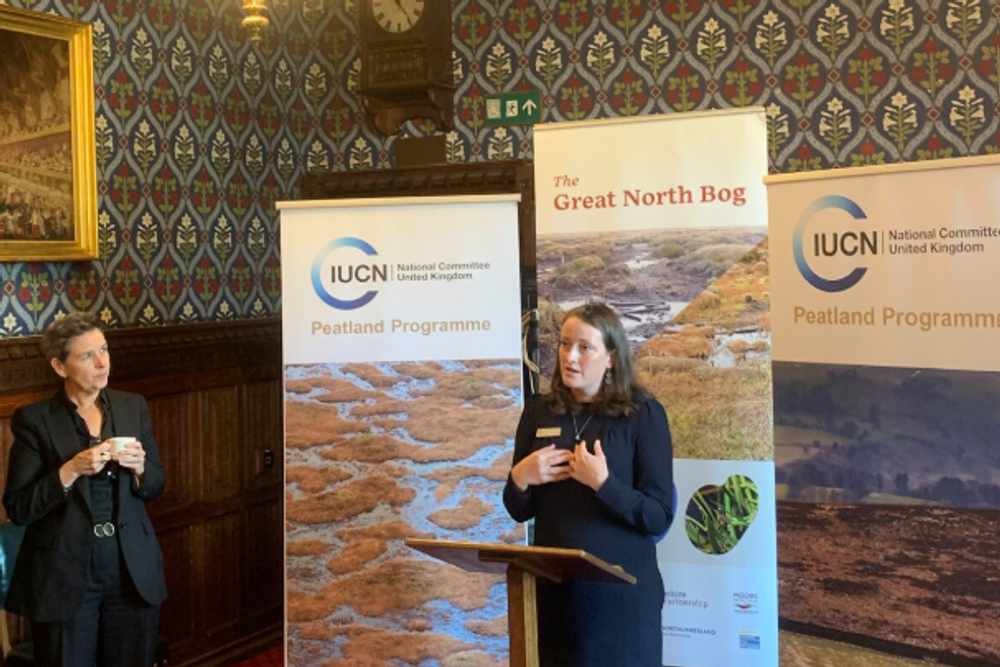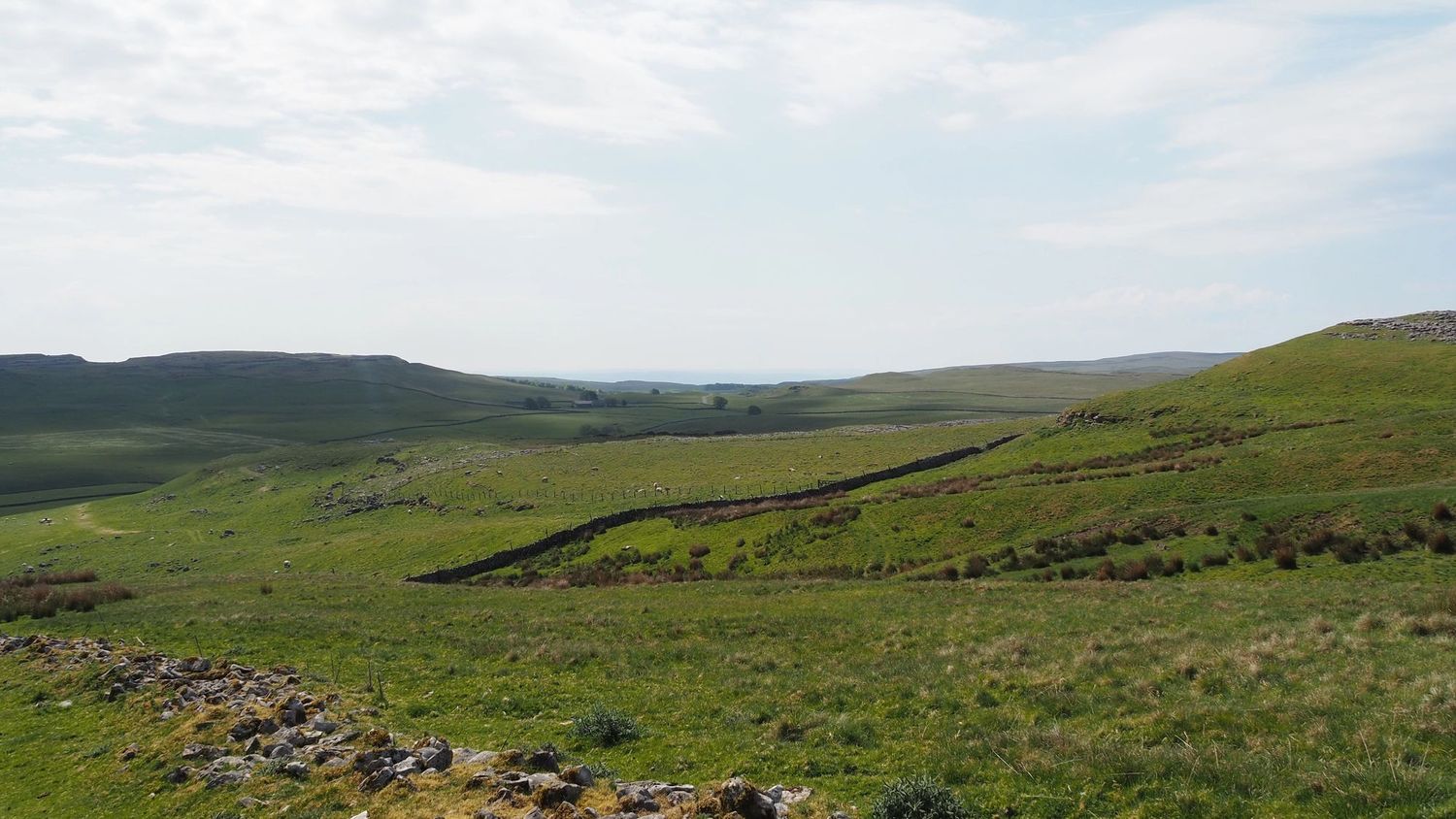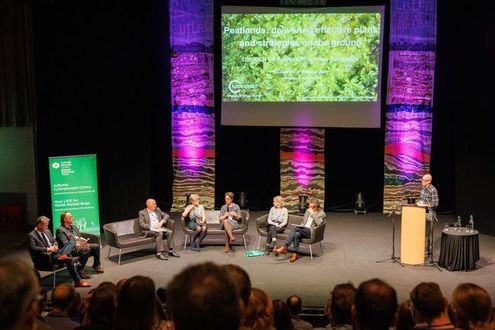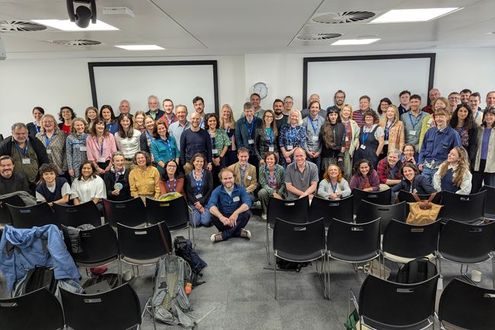A lot of exciting progress was made at the UK Action Site this year from advancing national peatland policy discussions in Parliament to developing a new flexible, participatory metadata standard to improve data exchange and support large-scale peatland restoration. Read more below!
Discussions in Parliament
Recently, UK Action Site partner Professor Joe Holden, director of iCASP and water@leeds, took part in the IUCN UK Peatland Programme’s UK parliamentary tour to discuss topical issues directly with parliamentarians, parliamentary aides and others from across government.
Joe was joined at the Westminster event by Emma Hinchliffe, director of the IUCN UK Peatland Programme, and Rachael Bice, Chief Executive of the Yorkshire Wildlife Trust and chair of the Great North Bog.
Together, they set out the ambition needed to meet peatland challenges and measures outlined in the UK Peatland Strategy Progress Report. At the event, the WaterLANDs White Paper developed by the UK Action Site on the requirements for up-scaled peatland restoration in upland England was promoted. It was a valuable opportunity which will result in follow-up conversations and drive positive change for UK peatlands.

Pictured is Emma Hinchliffe presenting and Mary Creagh MP, Parliamentary Under-Secretary of State at the Department for Environment, Food and Rural Affairs.
Developing a Metadata Standard for Peatlands
In addition, work is underway to develop a metadata standard for peatlands. Part of WaterLANDS, the project is focused on addressing the problem of data exchange in peatland science. A common issue across much of peatland science is that data collected by different scientists and organisations is often difficult to aggregate because of the different ways it is collected, formatted and stored.
Dr Dylan Young, Research Fellow at University of Leeds, said, “Our aim is not to mandate a particular data format, which, because of existing systems, would be costly and unlikely to be widely adopted. Instead we are focused on a participatory approach to develop a common flexible framework that links the peatland metadata standard with datasets of different formats and from different sources."
A one-day workshop was held at the end of the WaterLANDS General Assembly in May 2025. Participants from various organisations engaged in a process to review key definitions of terms, identify existing data standards, highlight gaps that need to be addressed for peatlands and discuss how to develop and implement a new metadata standard. Since the workshop, a draft metadata standard and related data ontology has been developed.
Practitioners have been invited to a second workshop in November 2025 to review, revise and test the new metadata standard prior to implementation.


